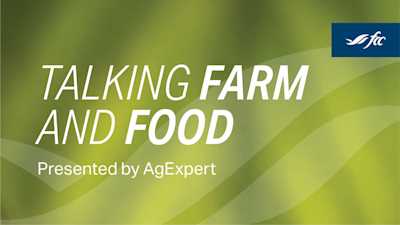How to protect your farm business from misinformation

We face an avalanche of information, making it hard to identify what’s credible. Misinformation pervades all industries, threatening efforts and hindering critical decision-making. As a farm operator, it’s essential to identify what’s valuable and question what isn’t.
But how do you do that?
Pause and assess social media
Social media platforms like Facebook, X and TikTok are especially prone to misinformation. Dr. Timothy Caulfield, Faculty of Law professor in the School of Public Health at the University of Alberta, says that misinformation is designed to engage users emotionally.
Caulfield suggests asking questions when you interact with social media content. “‘Is this messaging playing to my emotions or values? Is it trying to make me angry?’ These questions can help identify red flags, revealing cognitive biases at play,” he says.
Caulfield also suggests a simple trick: be patient. Avoid rushing decisions based on something you saw while scrolling. “Pause for a moment,” Caulfield says. “Take a moment and ask yourself if the headline or content is accurate. Good, credible research shows that pausing and reflecting before you internalize the messaging makes you more resilient to misinformation.”
Ask your experts
Eugenie Officer, sales enablement manager at FCC, echoes that sentiment. She suggests taking time to digest the information and stresses the importance of seeking the insight and opinions of the ag experts you deal with.
Consulting different experts helps ensure you’re always supported in the decision-making process.
“Consulting different experts helps ensure you’re always supported in the decision-making process,” she says. “Whether it be an agronomist, your lender, your lawyer or your accountant, they specialize in dealing with complex issues and might have more relevant information than you’ll find on social media or a Google search.”
Most specialists have professional standards to maintain. Officer says it’s less likely you’ll find yourself dealing with potential negative consequences if you seek professional help instead of doing your own research. “Any decision that might have legal or financial ramifications for your operation where you’re missing context or not 100% informed might result in some big impacts for you,” Officer says. After all, being an expert in all areas is unrealistic and making decisions that may impact your business can be stressful. This is where trusted advisors can be particularly helpful in bringing specific expertise to your operation.
Be mindful of AI
AI, or artificial intelligence, has exploded online and permeated many aspects of our digital lives. When it comes to AI, there’s good news and bad news, according to Dr. Caulfield. The bad news is that AI is going to make the situation worse. “AI can be used to make fake but very realistic-looking social media content quickly,” he says. “It can make fake news articles and fake research to support that content. That will make it so much more difficult to fact-check because you might be met with more AI-generated misinformation.”
However, there is good news. “There’s emerging research that we might be able to use AI tools to identify misinformation and create AI-generated chatbots that can help people navigate the conspiracy theories,” Caulfield says. “So, you can engage with these chatbots, and studies have shown that these really can help.”
It seems counterintuitive, using AI to weed out AI. “AI is not going away,” Caulfield says. “We’ve got to figure out how to work with these technologies to make things better.” Be mindful when engaging with AI so it works for you and not against you.
Develop critical thinking skills
Cultivating critical thinking skills is essential to deciding what’s legitimate and what’s not, particularly when it comes to your operation. “I think farmers are so well-placed to use critical thinking because they’re like interdisciplinary researchers already,” Caulfield says. “They know a lot about agriculture, business and the economy. I think the farming community already has built-in critical thinking skills.”
Key elements of a critical-thinking mindset to navigate misinformation:
Verify sources: Gather information from a variety of reputable sources rather than relying on a single study or article.
Understand context: Put whatever information you find into context by asking how it compares to industry norms or past practices.
Self-awareness: Recognize when information triggers strong emotions. Ask, “Is this trying to provoke me?”
Create a network of trusted advisors: Reach out to experts and rely on their expertise when making complex decisions about your business.
Stay vigilant online to shield your livelihood from misinformation, helping to strengthen your farm’s long-term success.
Watch for these misinformation red flags
Lack of sources – Be mindful of content that makes strong claims without credible sources.
Sensationalism – Investigate sensational headlines or claims.
“Too good to be true” offers – Be skeptical if a product promises extraordinary results with little effort or cost. If it seems too good to be true, it usually is.
Memes – Be careful of memes, as information shared this way is a common source of misinformation.
From an AgriSuccess article by Tim Parent.
